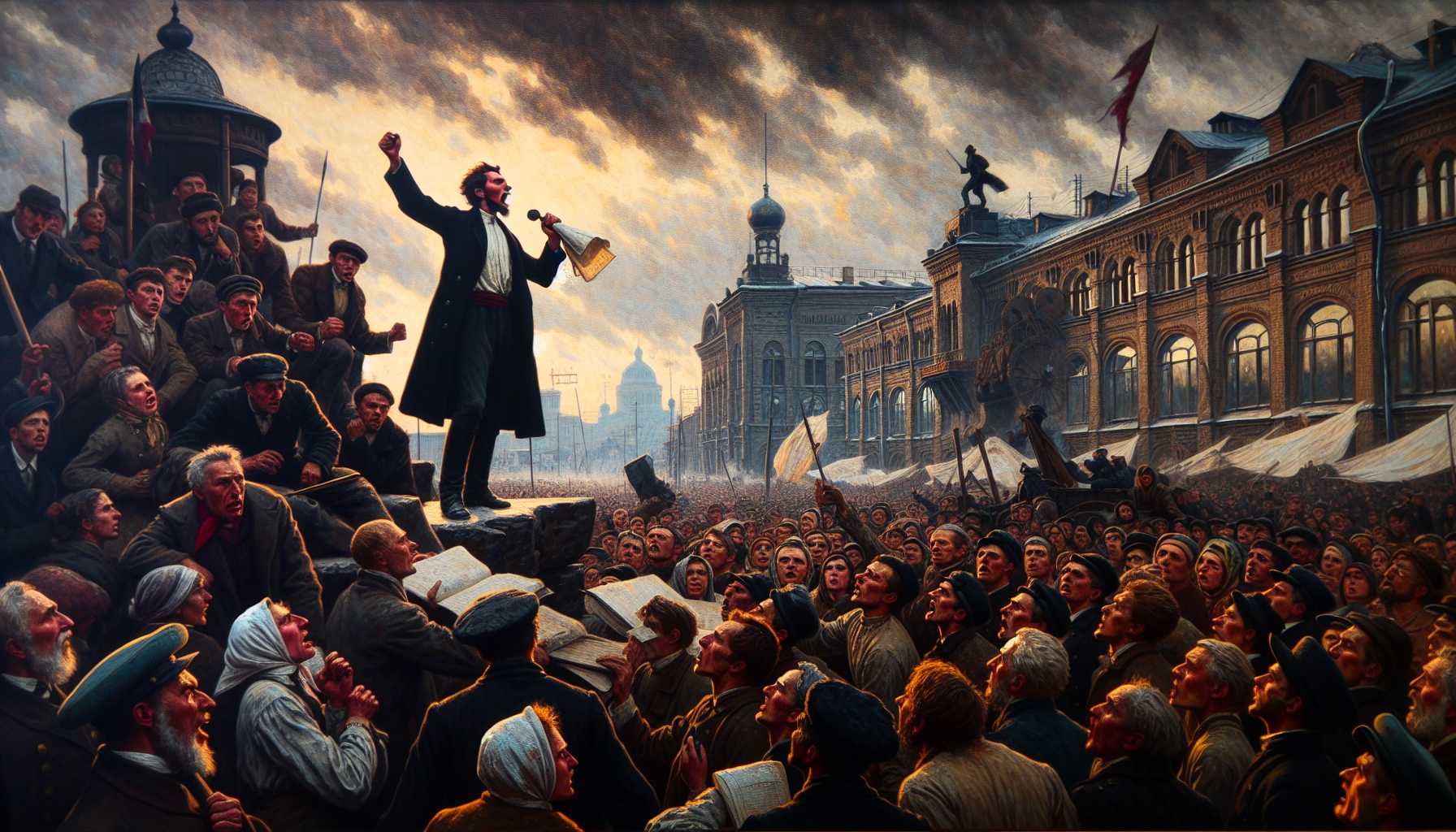
Vladimir Lenin Impact on 20th Century History and Communism
Vladimir Lenin was a pivotal figure in 20th-century history, best known for being the leader of the Bolshevik Party and the architect of the Soviet Union.
Urājīmiru Rēnin wa 20 seiki no rekishi ni okeru jūyō na jinbutsu de ari, Borishuviki-tō no shidōsha de ari, Sobieto Renpō no kenchikuka to shite mottomo shirareteimasu.
ウラジーミル・レーニンは20世紀の歴史における重要な人物であり、ボリシェヴィキ党の指導者であり、ソビエト連邦の建築家として最も知られています。
Born in 1870 in Russia, he became involved in revolutionary politics in the early 1900s, advocating for Marxist principles and the overthrow of the Tsarist autocracy.
1870-nen ni Roshia de umare, kare wa 1900-nendai shotō ni kakumeiteki seiji ni kan'yoshi, Marukusu shugi no gensoku to kōtei senzai no datō o dōdō shimashita.
1870年にロシアで生まれ、彼は1900年代初頭に革命的政治に関与し、マルクス主義の原則と皇帝専制の打倒を倡導しました。
Lenin's revolutionary fervor led to the 1917 October Revolution, which resulted in the Bolsheviks seizing power and establishing a communist government.
Rēnin no kakumeiteki jōnetsu wa, 1917-nen no 10-gatsu kakumei o hikiokoshi, sore ni yori Borishuviki ga kenryoku o nigiri, kyōsanshugiseifu o juritsu shimashita.
レーニンの革命的情熱は、1917年の10月革命を引き起こし、それによりボリシェヴィキが権力を握り、共産主義政府を樹立しました。
Lenin implemented significant reforms and policies aimed at restructuring Russian society and economy.
Rēnin wa Roshia no shakai to keizai o saikōchiku suru koto o mokuteki to shita jūyō na kaizen to seisaku o jisshi shimashita.
レーニンはロシアの社会と経済を再構築することを目的とした重要な改革と政策を実施しました。
His leadership during the Russian Civil War (1917-1922) solidified his power but also resulted in widespread violence and hardship.
Kare no Roshia naisen (1917-1922-nen) ni okeru shidōryoku wa kare no kenryoku o kyōka shimashita ga, dōji ni kōhan na bōryoku to konnan mo hikiokoshimashita.
彼のロシア内戦(1917-1922年)における指導力は彼の権力を強化しましたが、同時に広範な暴力と困難も引き起こしました。
He introduced the New Economic Policy (NEP) in 1921, allowing limited private enterprise to stimulate the economy after the devastation of the civil war, while still maintaining state control over major industries.
Kare wa 1921-nen ni shin keizai seisaku (NEP) o dōnyū shi, naisen no kōhai go ni keizai o shigeki suru tame ni kagirareta minkan kigyō o kyoka shimashita ga, shuyō sangyō ni taisuru kokka no kanri o iji shimashita.
彼は1921年に新経済政策(NEP)を導入し、内戦の荒廃後に経済を刺激するために限られた民間企業を許可しましたが、主要産業に対する国家の管理を維持しました。
After his death in 1924, Lenin's legacy continued to influence global politics, with the Soviet Union emerging as a superpower.
1924-nen ni kare ga nakunatta ato, Rēnin no isan wa sekai no seiji ni eikyō o ataetsuzuke, Sobieto Renpō wa chōtaikoku to shite tōjō shimashita.
1924年に彼が亡くなった後、レーニンの遺産は世界の政治に影響を与え続け、ソビエト連邦は超大国として登場しました。
His theories and practices laid the groundwork for future communist movements around the world, although his approach was often subject to criticism for its authoritarian tendencies.
Kare no riron to jissen wa, sekaijū no shōrai no kyōsanshugi undō no kiban o kizukimashita ga, kare no apurōchi wa shibashiba ken'ishugi no keikō ni taisuru hihan no taishō to narimashita.
彼の理論と実践は、世界中の将来の共産主義運動の基盤を築きましたが、彼のアプローチはしばしば権威主義の傾向に対する批判の対象となりました。
Lenin remains a controversial figure, symbolizing both revolutionary change and the complexities of totalitarian regimes.
Rēnin wa kakumeiteki henka to zentaishugi taisei no fukuzatsusa o shōchō suru ronsō no mato na jinbutsu no mama desu.
レーニンは革命的変化と全体主義体制の複雑さを象徴する論争の的な人物のままです。
Based on this article
